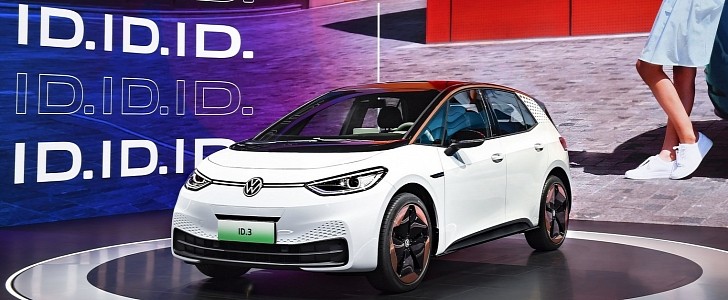Volkswagen already said that it is interested in keeping old battery packs. The idea is to recycle them when they are not suitable for automotive use anymore. That will make used battery packs a crucial source of raw materials for new ones. Apart from the strategies it already disclosed, the German company seems to be testing a new one in China: leasing battery packs in the ID.3.
At first, it looked like the same deal NIO does with BaaS (battery as a service) and Renault did with the ZOE in Europe. Customers would not own the battery packs: they would just rent them. In NIO’s case, swappable battery packs help the idea make sense: customers own the cars, not these components. In Renault’s, it was just weird to imagine the automaker would remove the battery pack if you did not pay the monthly fee.
As Yiche.com revealed, Volkswagen’s model is a bit different. Its main goal is to make the ID.3 cost around RMB100,000 ($15,644 at the current exchange rate) by decoupling the price of the car and that of the battery pack – which costs around RMB60,000 ($9,386).
When a Yiche.com reporter visited a Volkswagen dealer, he discovered the battery pack leasing was not exactly that: it was an interest-free loan for 60 months (5 years), which implies customers have to pay about RMB1,000 ($156) per month. When the loan ends, ID.3 buyers can keep the battery packs.
Curiously, that deviates from Volkswagen’s strategy for retaining these valuable components. First, the German carmaker said that it would offer attractive prices for customers to sell them back. Later, it disclosed that it plans to lease used EVs until their battery packs no longer meet minimum automotive requirements. At this point, they should become stationary energy storage devices until they have no other path but recycling.
In China, government policies may be the answer to Volkwagen’s unusual strategy. Perhaps the German carmaker is confident it will get these battery packs back for some reason that we cannot determine at the moment. If that were not the case, the interest-free loan would be just rent, and that’s it.
With that in mind, Volkswagen’s only concern in China seems to be putting as many ID.3s in customers’ hands as possible. If the idea works there, we may see it spread to other markets.
As Yiche.com revealed, Volkswagen’s model is a bit different. Its main goal is to make the ID.3 cost around RMB100,000 ($15,644 at the current exchange rate) by decoupling the price of the car and that of the battery pack – which costs around RMB60,000 ($9,386).
When a Yiche.com reporter visited a Volkswagen dealer, he discovered the battery pack leasing was not exactly that: it was an interest-free loan for 60 months (5 years), which implies customers have to pay about RMB1,000 ($156) per month. When the loan ends, ID.3 buyers can keep the battery packs.
Curiously, that deviates from Volkswagen’s strategy for retaining these valuable components. First, the German carmaker said that it would offer attractive prices for customers to sell them back. Later, it disclosed that it plans to lease used EVs until their battery packs no longer meet minimum automotive requirements. At this point, they should become stationary energy storage devices until they have no other path but recycling.
In China, government policies may be the answer to Volkwagen’s unusual strategy. Perhaps the German carmaker is confident it will get these battery packs back for some reason that we cannot determine at the moment. If that were not the case, the interest-free loan would be just rent, and that’s it.
With that in mind, Volkswagen’s only concern in China seems to be putting as many ID.3s in customers’ hands as possible. If the idea works there, we may see it spread to other markets.







